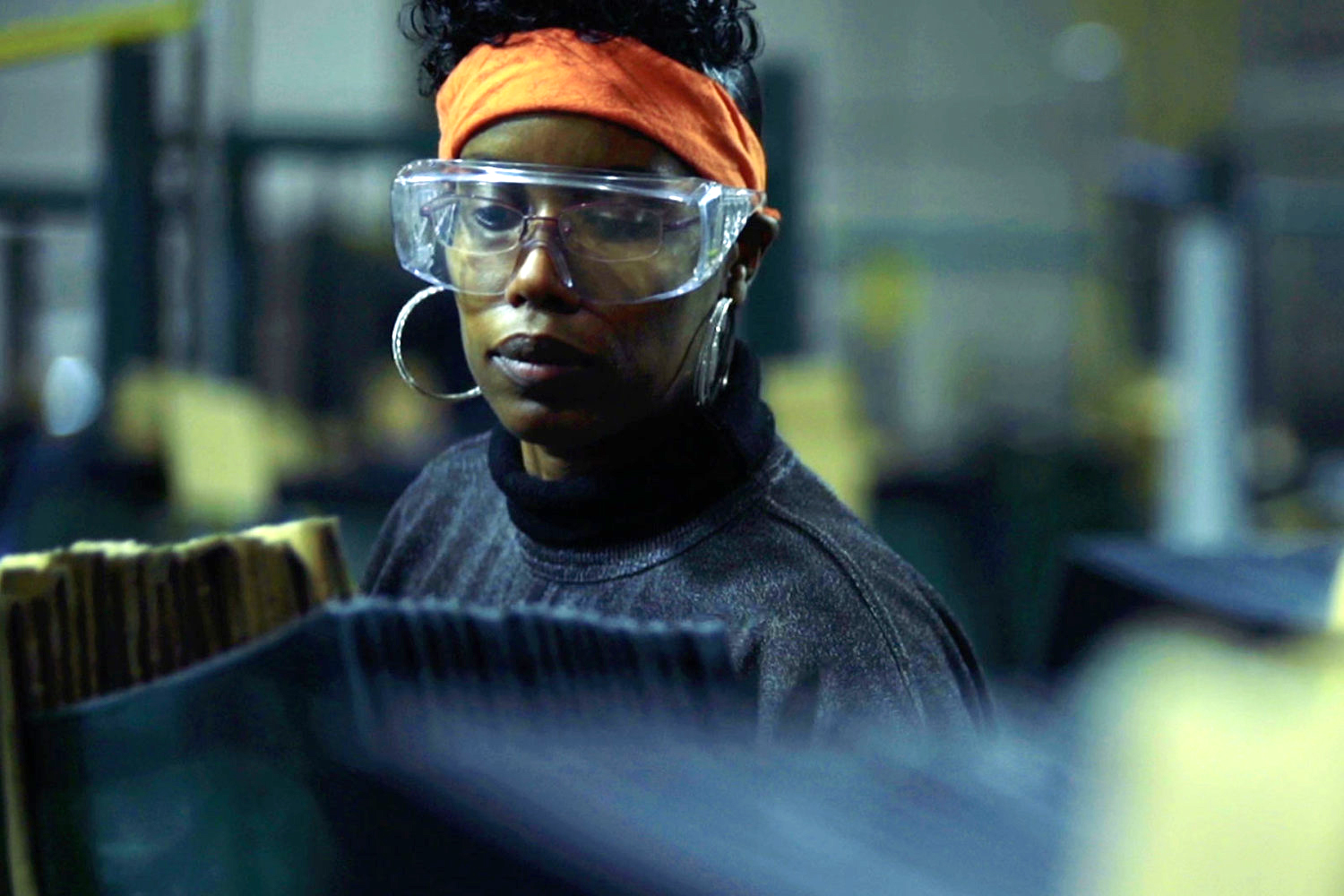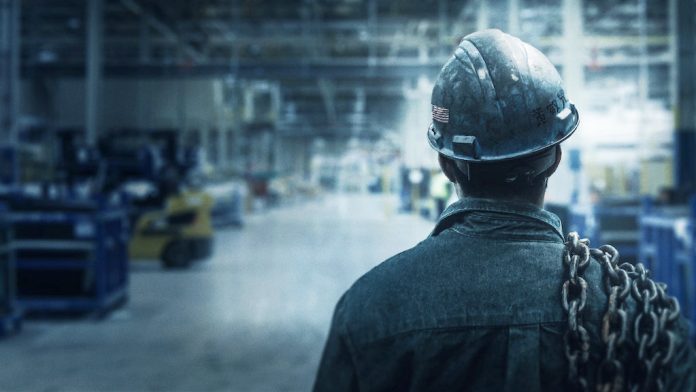(THIS ARTICLE IS MACHINE TRANSLATED by Google from Norwegian)
The car factory for General Motors (GM) in Dayton, Ohio, had to close its doors in 2008: There were downturns and low demand for gas-fueled cars. More than 10 people became unemployed overnight. The directors Steven bognar og Julia Reichert documented the incident in The Last Truck: Closing of a GM Plant (2009, HBO). IN American Factory the two-team has returned to Ohio.
The car factory was bought by the Chinese billionaire Cao Dewan d and reopened in 2014 with glass window manufacturing for the automotive industry: Fuyao Glass America.
Get half the salary
"We're never going to make that much money again – that time is over," says a former GM employee resigned.
The film opens with many of Fuyao's employees initially excited about new job opportunities. Truck driver Jill has struggled to make ends meet after she lost her job at GM. Since the mortgage became impossible to service and the bank took over the home, she has lived in her sister's basement.
The salary differences for GM and Fuyao employees are enormous. Shawnea, who inspects the glass panes, makes $ 12,84 an hour – half of what she earned at GM. She feels the pay gap on her body, she can't buy new sneakers for the kids when they need it.
American Factory is a fascinating fly-on-the-wall insight into new global capitalism, where workers are increasingly regarded as replaceable because robots and machines take over jobs. There is a contradiction between the rights of employees and the pursuit of profits, a tension that increases because the cultural and fundamental values are different – that is, the rights of the individual are set against the collective effort. The company "must be an American company", but "with success", we hear, and wonder what might be the subject of negotiation when it comes to meeting these expectations. In the face of Chinese factory culture and norms, American workers could just as well have been on Mars.
communication failure
Cao Dewang (in the movie only referred to as "Chairman"), is still present with frequent visits to the factory in the United States. His frustrations over the "unruly" American workers are increasing as the company fails to make a profit in its initial phase.
There are comical examples of communication failure and lack of understanding, and we see a US work team replace a door because it opens the wrong way: They humbly and strive to hide that they are quoted over extra expenses and extra work. But it soon becomes clear that there is a sea of difference in the way Chinese and Americans operate, and that serious problems and disrespect cannot be avoided.

Directors Steven Bognar, Julia Reichert
"You have to stroke your ass with your hair, or it will kick you," says a consultant, hoping to get Chinese employees to understand how US employees need to be treated to perform their best. It is argued that Americans "love to be bragged" and therefore have gained quite a bit of self-confidence. The result of the effort has been disappointing so far. "They're pretty slow – they don't get their fingers," is the feedback from the Chinese on the factory floor.
The Chinese believe that Americans are simply lazy, but find that having a tough job in an unsafe work environment can have negative consequences.
Military precision
The company flies several of the US middle managers to visit the Fuqing factory in Fijian province. There, the workers stand guard and leave with almost military precision (one of the leaders' attempts at the same back in Ohio calls for the smile).
The Chinese workers are not only prepared to take orders, but also to work overtime when asked.
In the face of Chinese factory culture and norms, American workers could just as well have been on Mars.
"I'm tired, but I have no choice," says a mother who has already worked a 12-hour shift. She goes home to visit the children only once a year.
At a company event in China we see a synchronized squad paying tribute to the company as "a company with LEAN * production" in a propaganda-like act that emphasizes that life is all about wanting to work.
All the workers are unionized, but since the organization is closely linked to the firm and the Communist Party, it is probably a body of control.
Scared of organizing
Back in Ohio, the staff split on the issue of union organization.
Bobby has worked in GM for 15 years with no injuries. It didn't take long before he sustained his first injury as a Fuyao employee, in a factory where security measures are viewed as unnecessary luxury by the Chinese owners.
The management hires a consultant to prevent the trade union organization United Auto Workers from having a breakthrough, and uses the consultant to scare the employees ahead of the important choice of trade union organization.
American Factory also shows how cultural exchange can have its positive sides. Oven Manager Roy says that engineer Wong, who has taught him new tricks to get back to work mid-life, is "like a brother" to him. Roy says he has had Chinese colleagues visit for Thanksgiving and has allowed them to shoot with his weapons.
However, this is not a sweet tale of global harmony. It is a film that shows a curious but cautious vision for the time we are living in, about a polarized world filled with conflicting needs and interests.
"Two tigers can't live on the same mountain," a Chinese saying reads. Fuyao is now making a profit, but the proposal for trade union organization did not win. It doesn't seem like everyone can win.
- LEAN is a production method that is characterized by eliminating waste, and looks at the customer's experience of the product's value rather than cost elements
Translated by Iril Kolle


